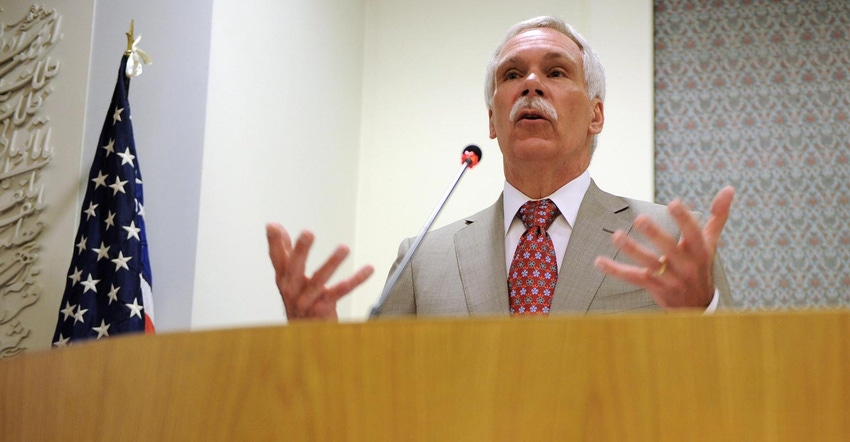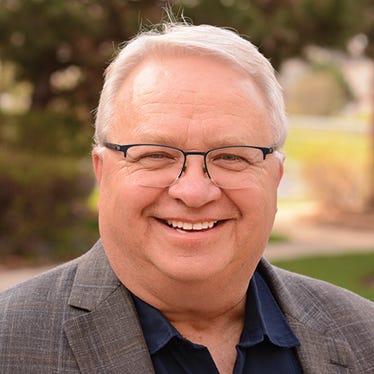
All the tools in agriculture technology’s toolbox will be needed to feed the world in the future, according to Ed Schafer, who was the U.S. secretary of agriculture in 2008-09 and governor of North Dakota from 1992 to 2000.
Schafer is featured in a new ClimateAi podcast. ClimateAi is a developer of a cloud-based enterprise software platform intended to predict the risk of climate change.
Feeding the world in the future will take continued use of genetically modified organisms and new biotech plant breeding methods, Schafer said.
The technology will be key to being able to quickly develop new grain and oilseed hybrids adapted to the changing climate, he said.
Feeding the world’s growing population during climate change will also require development of new precision farming technology to increase yields, Schafer said.
Schafer said that someday drone soil sensors will help farmers more accurately vary the seeding and fertilizer rates to match soil conditions. He also discussed the idea of using a radish variety to break up soil compaction and improve the soil quality.
Schafer warns that proponents of organic and other farming methods should not be quick to ban use of new technology that might limit yield potential. The priority should be on increasing yields in a sustainable manner because the world needs to double food production by 2050 to keep up with population growth, he said.
Schafer is optimistic that agriculture will rise to the challenge.
“I have no doubt that we will develop equipment that works better, that we will develop seeds that produce more, [and] that we will develop harvesting methods that are going to be better,” he said.
Other topics discussed in the wide-ranging interview included:
Water shortages. Schafer is concerned that there will be water shortages in some parts of the world in the future.
Loss of farmland. Urbanization is a threat to future of food production, Schafer said.
China trade. When he was governor, Schafer helped develop connections with China. Building personal relationships is important, he said. He recalled a trip where he and others helped manually unload bags of beans at a port to impress Chinese buyers.
About the Author(s)
You May Also Like






